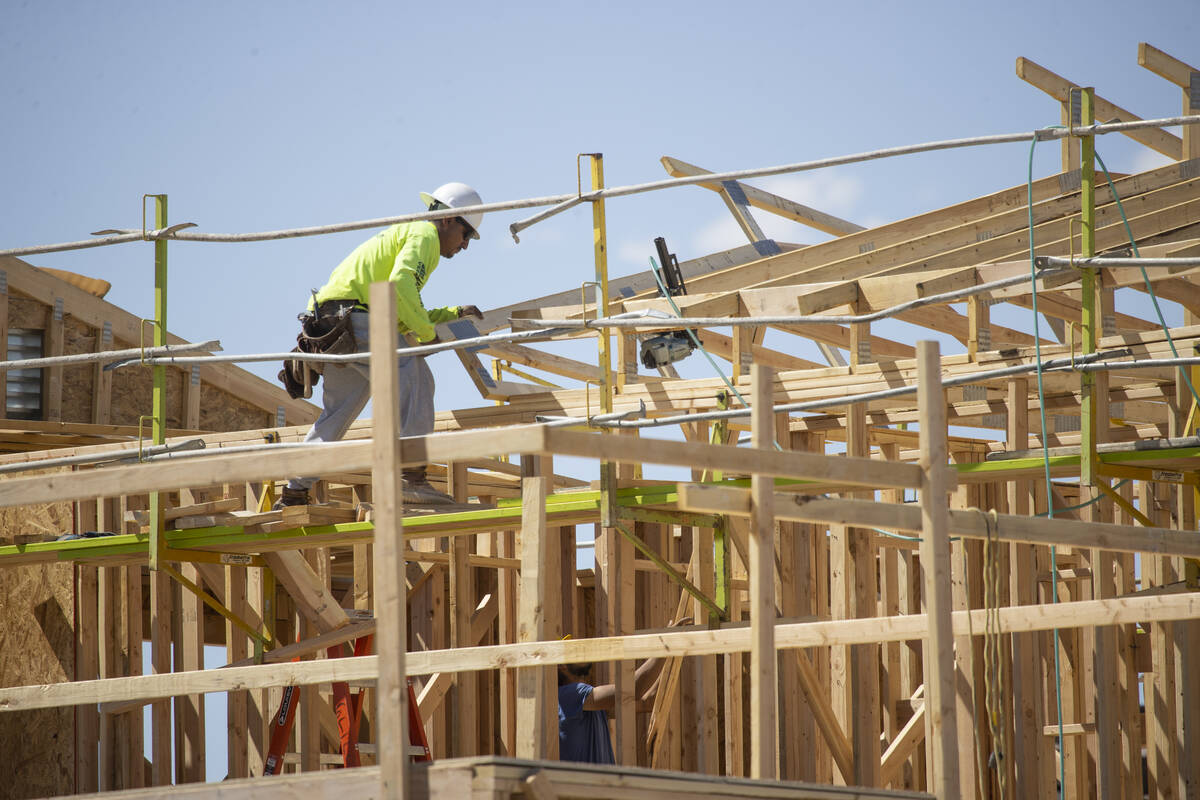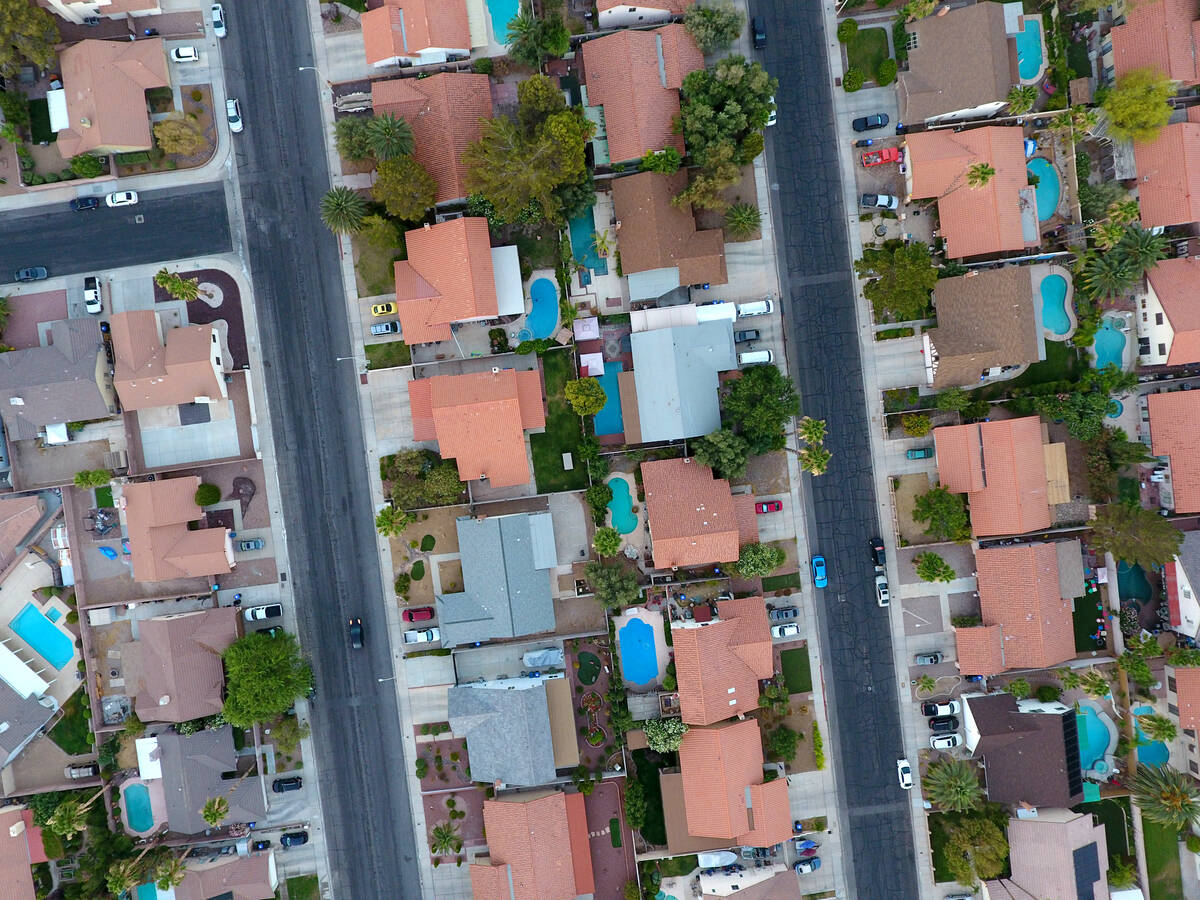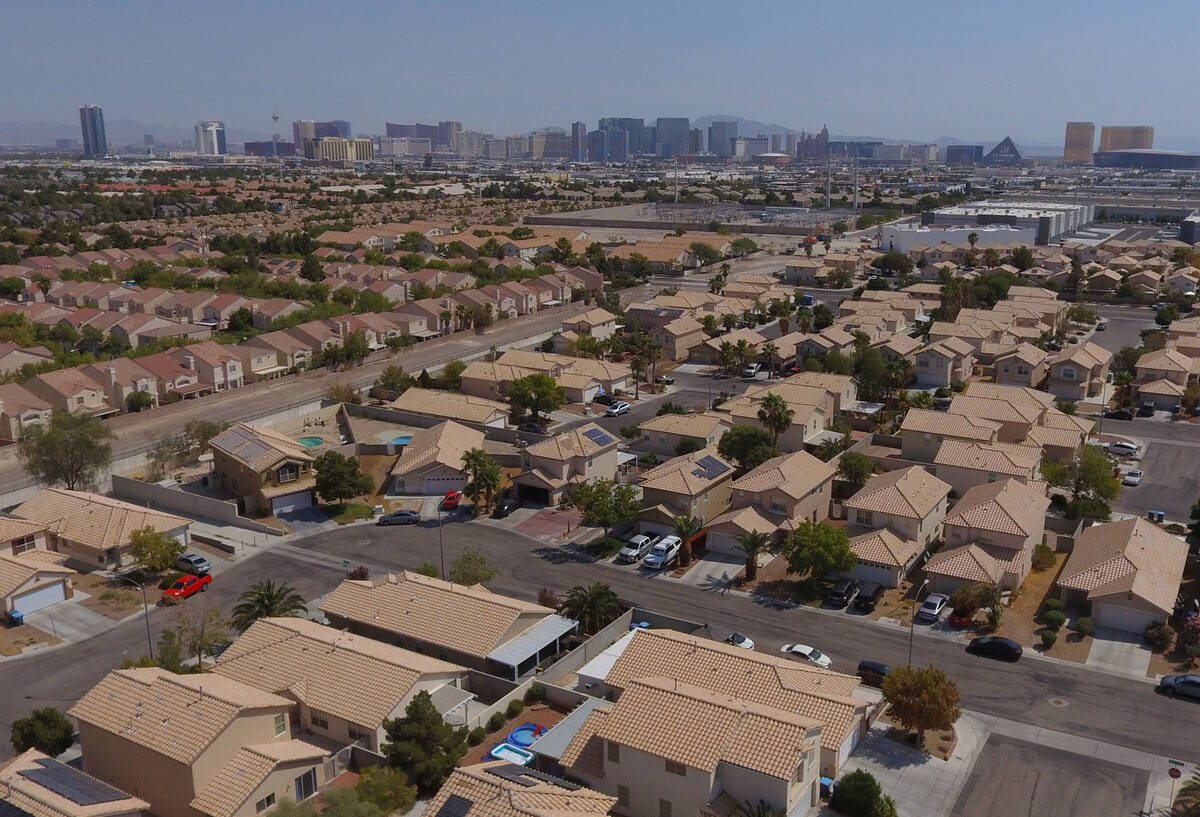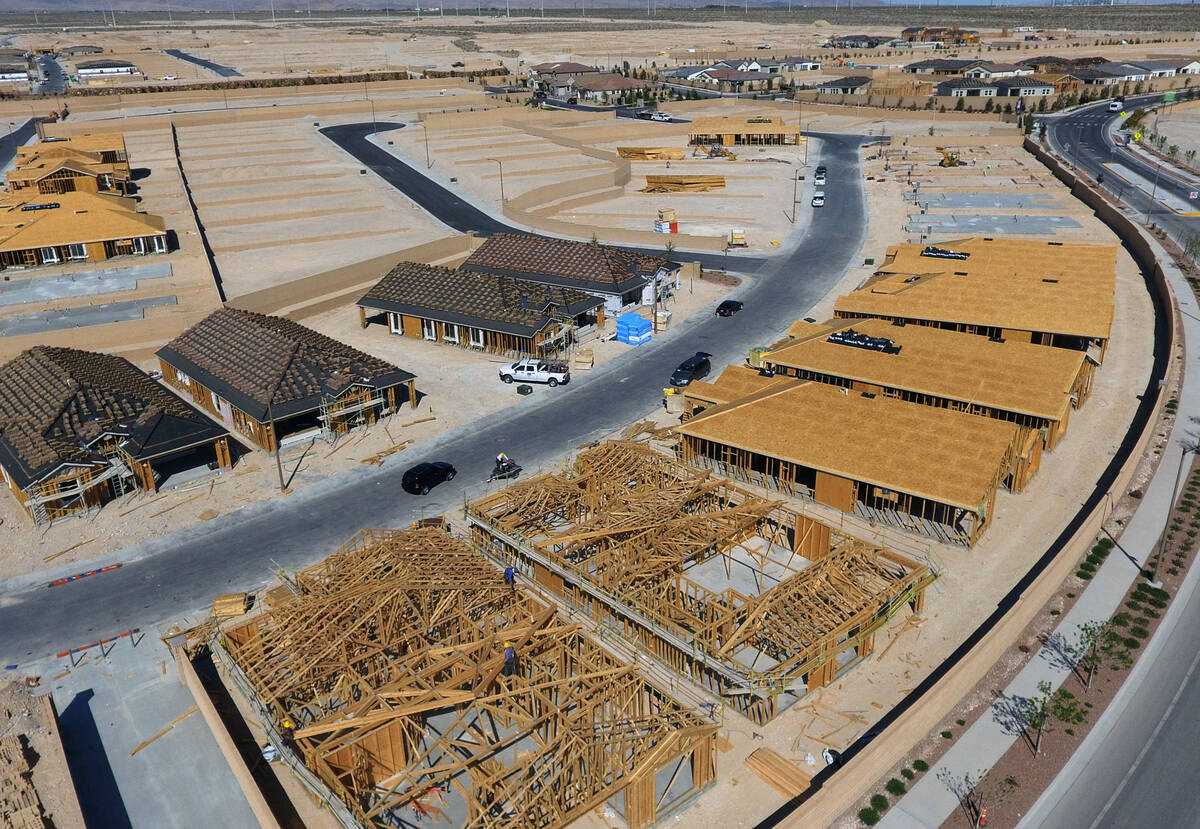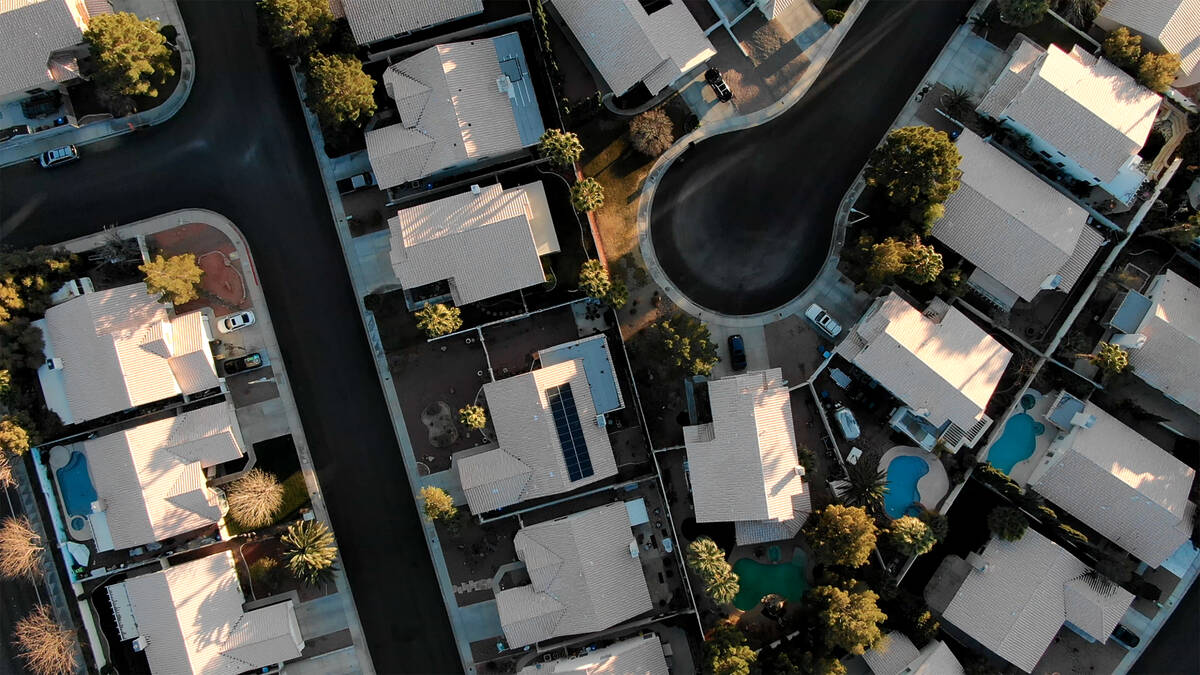Housing boom not ending in 2022, expert says
After the coronavirus pandemic upended daily life and sparked huge job losses nationwide, it was only a matter of months until housing markets in Las Vegas and across the U.S. unexpectedly started heating up.
Rock-bottom mortgage rates let people — at least those who could still afford to buy a home — lock in lower monthly payments and stretch their budgets, sparking a buying boom that still hasn’t ended.
Las Vegas, for one, has seen a prolonged streak of rapid sales and record-high prices, thanks to cheap money and more buyers than usual from expensive markets like California.
Southern Nevada house prices were up 25.5 percent year over year in October, compared with the U.S. rate of 19.1 percent, according to the S&P CoreLogic Case-Shiller index.
By comparison, in October 2020, Las Vegas prices were up 6.5 percent from a year earlier, and U.S. prices were up 8.4 percent.
Frank Nothaft, chief economist with housing tracker CoreLogic, spoke with the Review-Journal about the U.S. market’s trajectory during the pandemic and what might happen next.
The interview, conducted Dec. 9 at the National Association of Real Estate Editors conference in downtown Miami, has been edited for length and clarity.
When the pandemic hit and everything started shutting down, what did you initially think was going to happen to the housing market around the country?
We thought there was going to be a big drop in housing activity. We had lost over 20 million jobs in the space of just several weeks. And if people don’t have income, they don’t have an ability to afford to buy, and lenders would be very reticent to make loans, especially to people who have limited income resources.
Did you at least initially think that it could be worse than the housing crash of a decade or so ago?
I wouldn’t say worse, because in that crash, we had home prices fall about 33 percent in the national index from peak to trough. We were projecting a decline, but not 33 percent. But we were expecting it was going to be a really rough housing market.
And for a couple months, it was, at least in Vegas. We saw a big pullback in sales. What did you see nationally for the first few months?
We saw a big drop in the number of home sales in April and May of 2020. You look at January, February of 2020, the housing market looked in great shape. Then we had the pandemic. The housing market didn’t come to a complete standstill, but it was turned upside down.
When did you start to notice that not only is it not crashing, but housing is starting to pick up a lot?
It was really when we got to the summer of 2020. Mortgage rates fell to 3 percent or even lower, and for many prospective homebuyers who didn’t lose their jobs, they saw this opportunity presented by record-low, rock-bottom mortgage rates, and the affordability that introduced. We saw a lot of prospective homebuyers jump into the market, first-time homebuyers in particular. They saw this as an opportunity to trade up, buy more house, and more house, more room is exactly what they wanted during the pandemic. They needed more space because they needed the office from home. And if they had kids, at that stage of the pandemic, they had to plan for a school room from home, too.
In Vegas, things heated up a lot in the summer and fall of 2020. But then in 2021, it felt like the market was pushing its foot on the gas even harder. Did you see that around the country as well? And if so, why?
We had a lot of fiscal stimulus, both in terms of the support coming from the federal government in terms of payments, combined with a monetary stimulus coming from the Federal Reserve that increased the financial ability of more prospective homebuyers. And yet, we still had a limited inventory on the market. When you have heated demand or increases in demand with limited supply, it translates into a more robust home price growth. That’s exactly what we’ve seen over the last several months, month after month.
Has the duration of the hot streak surprised you?
Our forecast was that we’d see mortgage rates rising by now — well, they didn’t. Mortgage rates reached record-low levels. That has been a very powerful stimulant to the housing market.
In Vegas, we’ve got buyers coming in who earn a lot more money than the typical Vegas household who are able to buy a much more expensive home. Are you hearing that the people who already live in markets like Boise and Vegas are getting priced out or that there are affordability concerns?
Absolutely. You see prices really getting bid up. It makes it just that much harder for households, families that have been living in a market like Las Vegas to afford to buy. We see that in so many other markets. And what is so interesting when we look at our (multiple listing service) database from CoreLogic, what we’ve observed during the summer is something that we’ve never seen in the last 20, 25 years in the country. In the summer of ’21, more than one-half of the homes that sold on the MLS sold above the list price. And it’s not just that they’re selling above the list price, they’re selling quickly.
How do you think the current boom could all end?
We’re expecting a gradual rise in mortgage rates. So, if that scenario comes to pass, and we see mortgage rates gradually rise and return back to some type of normal level, by the time we get to 2023, 2024, then we’ll see a gradual slowing down in home sales activity and in home price growth.
But not for a couple of years.
Probably by 2023, we should start to see some slowdown because we’re expecting mortgage rates to move even higher in 2023. But I think that’s how long it takes to get back to some degree of a normal housing market.
Contact Eli Segall at esegall@reviewjournal.com or 702-383-0342. Follow @eli_segall on Twitter.



